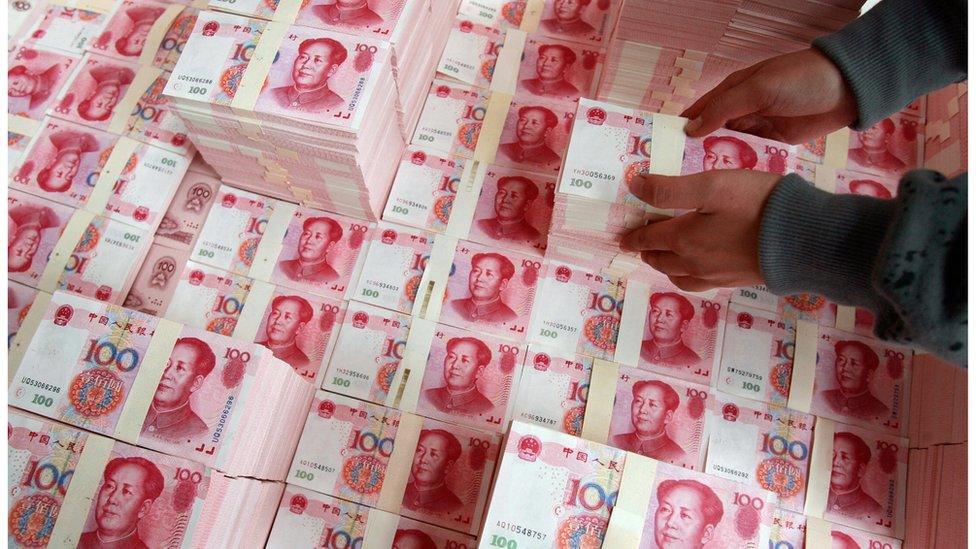China's credit rating downgraded by S&P
- Published

China's credit rating has been downgraded by Standard & Poor's (S&P) because of worries over the rapid build up of debt in the country.
S&P cut China's rating by one notch from AA- to A+, saying its debts had raised "economic and financial risks".
The International Monetary Fund warned in August that China's credit growth was on a "dangerous trajectory".
S&P's move puts its rating for China on a par with the two other major credit rating agencies, Moody's and Fitch.
The downgrade comes a month ahead of the Communist Party Congress, the country's most significant political meeting which takes place only twice a decade and sets economic policy for the coming five years.
This government has a growth target of 6.5% for 2017, although the economy grew at an annual rate of 6.9% in the second quarter of the year.
One engine of growth has been investment in infrastructure and property by corporations and local authorities.
S&P said in a statement: "The downgrade reflects our assessment that a prolonged period of strong credit growth has increased China's economic and financial risks."
Claire Dissaux, head of global economics and strategy at Millennium Global Investments in London, told Reuters the debt problem in the country was immense: "China's credit problem is the biggest problem we have ever seen in any country and probably justifies a lower rating."
She also warned that the centralised nature of the regime meant China's exact position might not be clear: "One element that models cannot capture is the strength of institutions, such as transparency of regulation of the banking sector and central bank independence. All that is an argument to say China's rating might still be too good."
- Published19 September 2017
- Published19 September 2017
- Published15 August 2017
- Published17 July 2017